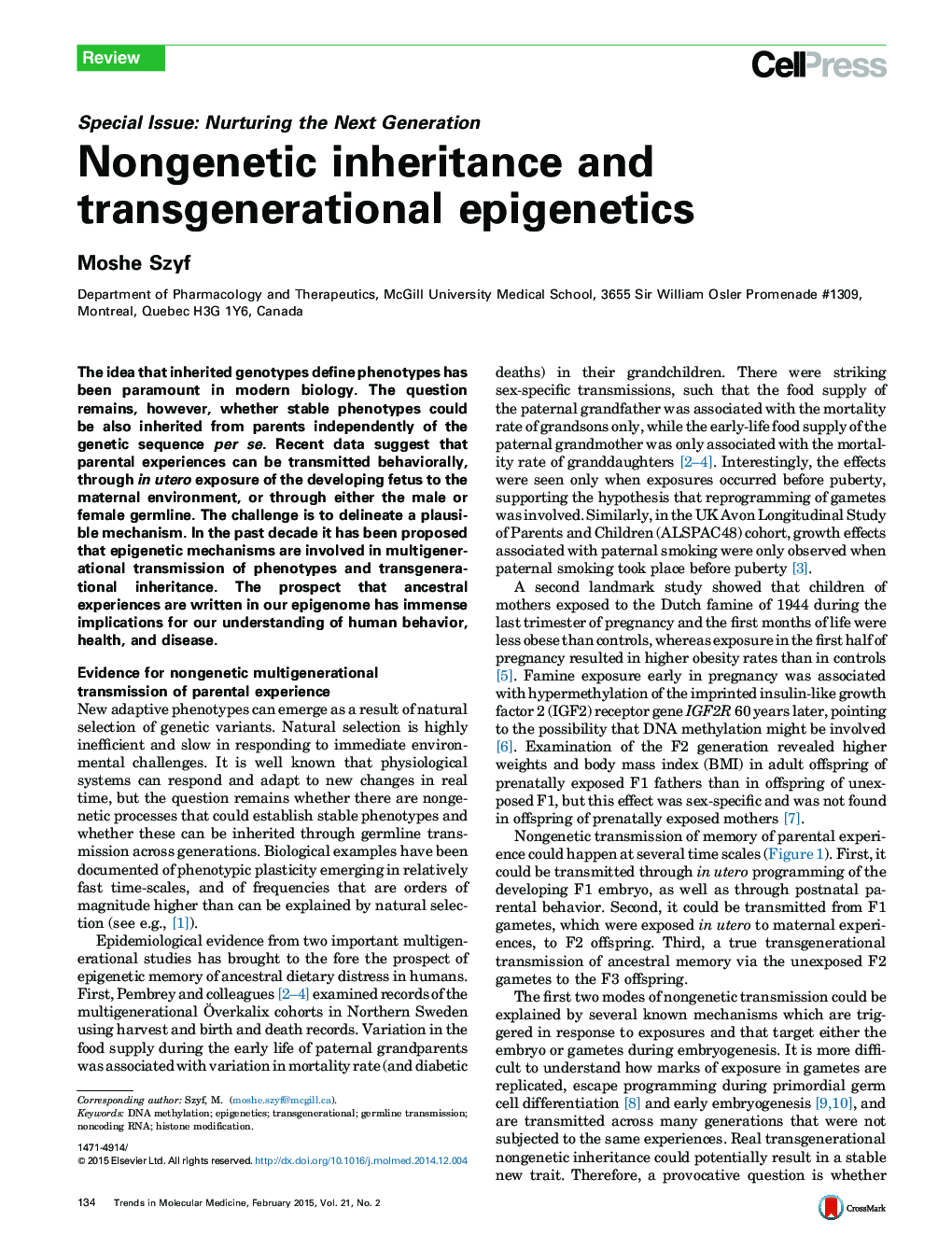| Article ID | Journal | Published Year | Pages | File Type |
|---|---|---|---|---|
| 2838454 | Trends in Molecular Medicine | 2015 | 11 Pages |
•Evidence from plants, animal, and human epidemiological studies has provided significant evidence for nongenetic multigenerational transmission of phenotypic responses to ancestral experiences.•It is important to distinguish multigenerational exposures of either fetus or germline from bona fide transgenerational gamete-mediated nongenetic transmission.•Epigenetic modifications such as DNA methylation, chromatin modification, and noncoding RNAs are involved.•True transgenerational epigenetic transmission could possibly establish new stable traits in response to ancestral experience.
The idea that inherited genotypes define phenotypes has been paramount in modern biology. The question remains, however, whether stable phenotypes could be also inherited from parents independently of the genetic sequence per se. Recent data suggest that parental experiences can be transmitted behaviorally, through in utero exposure of the developing fetus to the maternal environment, or through either the male or female germline. The challenge is to delineate a plausible mechanism. In the past decade it has been proposed that epigenetic mechanisms are involved in multigenerational transmission of phenotypes and transgenerational inheritance. The prospect that ancestral experiences are written in our epigenome has immense implications for our understanding of human behavior, health, and disease.
